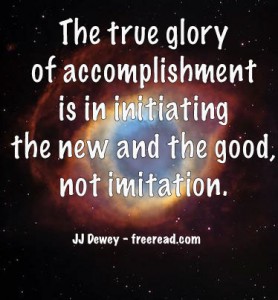Oct 3, 2015
Helping the Poor
Let us start by acknowledging this one point. The rank and file of both the left and the right want to help the poor. The problem is that they have different ideas as to how this should be accomplished.
The person of the left may respond to this and say something like:
“The right are hard hearted and couldn’t care less if the poor starved to death.
One on the right may also accuse:
“The lefty only wants to give tax dollars to the poor to buy votes. If the majority of the poor voted for the right then he wouldn’t give a hoot about them.”
There are threads of truth in both accusations. There are a handful on the right who are against any form of assistance, though these rarely get elected to office. Some feel that the poor are just lazy and if they would be willing to work then they wouldn’t be poor.
Also, on the left there are those who mainly want to help them because they vote for their side. Unlike the right, many of these do get elected to public office so this gives them a big political advantage.
But among the rank and file of the left and the right are good-hearted people of compassion who are willing to go to same degree of sacrifice to assist the poor.
If both the left and the right would just tone down their accusative spirit a little and admit that most of the general public on both sides have compassion and want to help others, then a lot of the conflict would subside and maybe something positive could get accomplished.
If this is true then why does there seem to be a huge difference in the two sides?
The difference is not in the desire to help, but how to help and how much assistance should be given.
The right is prepared to spend some of other people’s money (tax dollars) to help supply basic needs such as food, shelter and some medical. Most would like to see those assisted to make some type of contribution to assist themselves and to encouraged to take steps to become financially solvent on their own.
The left generally wants to assist way beyond food and housing and extend this to complete medical, dental, education, and hundreds of assistance programs that go beyond basic needs.
This is where the conflict comes in. The right wants to keep expenditures of our tax dollars to a minimum for public assistance and fill in the gaps with free will charities while the left never reaches a level of assistance that satisfies them. When they pass one level then they move to another costly level that they begin to promote.
For instance, as soon as they passed Medicare, they began to promote additional expenditures that led to Obamacare. Now they have Obamacare they want single payer universal care. Then, if that is achieved, some other expenditure will be desired.
These two approaches are in great opposition to each other. The only peaceful way to resolve them is to place all such ideas before those who will foot the monetary bill and let the majority of them decide how much they want to assist and then use that donation supported by the majority while ceasing to borrow our grandchildren’s money for our pet programs.
One positive step both sides can make in the present, without the need of great political change, is to just see the good in each other’s hearts. The vast majority of both sides have compassion for the down and out and realize that if the right circumstances happened that they could be in need also.
If both sides start with this good will assumption in each other and cease bitter accusations to the contrary then perhaps we, as a society, can make a little progress toward achieving practical solutions and live in greater harmony.
I speak here as one who has been through some very difficult financial times in my life.
My dad was a big drinker, party guy and gambler and even when he made reasonable money my mom seldom had enough for groceries. Then at the age of 12 it finally looked like we were heading toward abundance when a major fluke caused us to lose everything. We had no money to pay rent or buy food and had to move into a shack with maybe 200 feet of living space located in my sisters prune orchard in Letha, Idaho.
Then, to make matters worse my Dad took off to Central America in search for gold and we never received any financial support from him again. We were completely on our own with no help from anyone except the shack supplied by my sister and my brother-in-law.
As far as I could discern my younger sister and I were the poorest kids by far that went to our school. None of the other kids had to live in a shack. Living in the shack didn’t seem too bad, but the difficult part was the embarrassment we suffered if someone found out where we lived and they felt sorry for us. Being felt sorry for was much more difficult than the poor circumstances.
As far as feeling poor, even though I didn’t have advantageous circumstances and no government help I never felt poor. I hated the word and refused to identify with it. Both my mother and I made the best of our situation and sought out whatever work was available. For me it was generally orchard work and picking fruit. I was a fast fruit picker and made good money at it and bought all my clothes, school supplies and personal needs. I also did a lot of hunting and fishing and we often dined on pheasant, duck, bluegill, crappie and bass that I brought home.
We lived in that shack for about a year and after that we moved into an old house and gradually became more secure largely through the shear will power of my mother. Through my high school years my mother and I picked fruit in the summer and she worked for near minimum wage in a potato plant in the off season.
The funny thing is I made pretty good money picking fruit and always bought expensive clothes for myself and kind of felt sorry for other kids who depended on their parents and had to wear the cheap stuff. I wondered why they didn’t get an orchard job, which was available to anyone who applied.
Any way, some have accused me of being out of touch with the poor, but I understand what it is like to grow up in difficult circumstances. Then there are other circumstances I could tell you about. For instance, I had a string of unbelievably bad luck where I worked for about a dozen companies a row that went out of business causing me to lose my job again and again. One of them had been in business for 150 years.
I understand difficult financial circumstances, but I also understand that you do not have to have the victim mentality and that it is more humiliating to be pitied as a victim than to be one – at least for me it was.
After all I have went through my basic philosophy toward those in need boils down to this. Help them when they cannot help themselves and do all in our power to help them to help themselves. The worst memories of the scarcity of my youth had nothing to do with the lack of material things, but the pity I sometimes encountered. That was much worse.
Anyone who wants to examine my plan that will assist those in need without bankrupting the nation go HERE.
For the full plan one can check out the link there to my book, Molecular Politics.
Copyright 2015 by J J Dewey
Easy Access to all the Writings
For Free Book go HERE and other books HERE
Check out JJ’s Political Blog HERE
JJ’s Amazon page HERE
Join JJ’s Study class HERE


